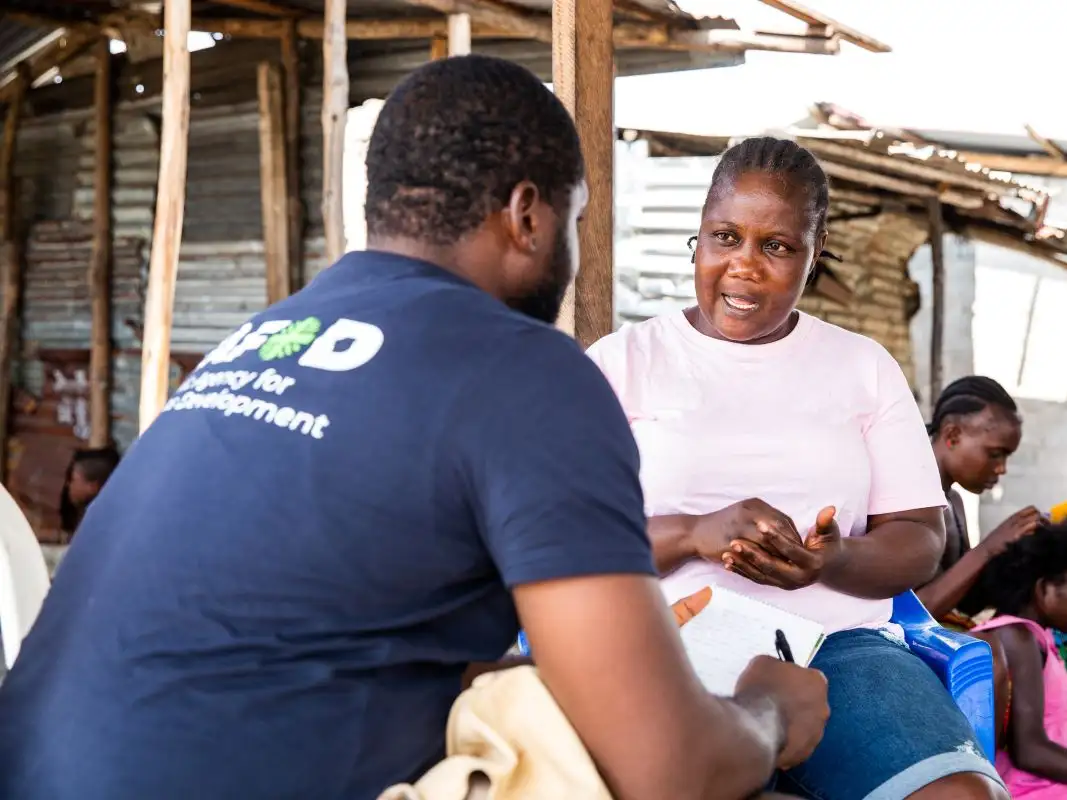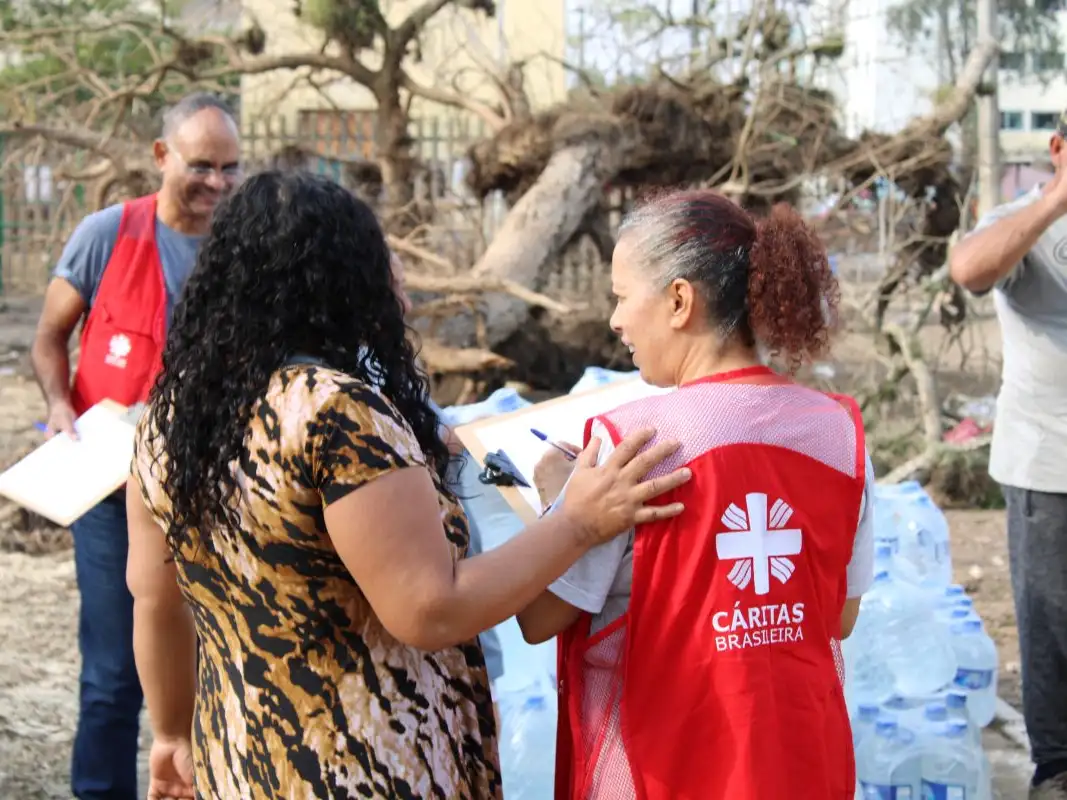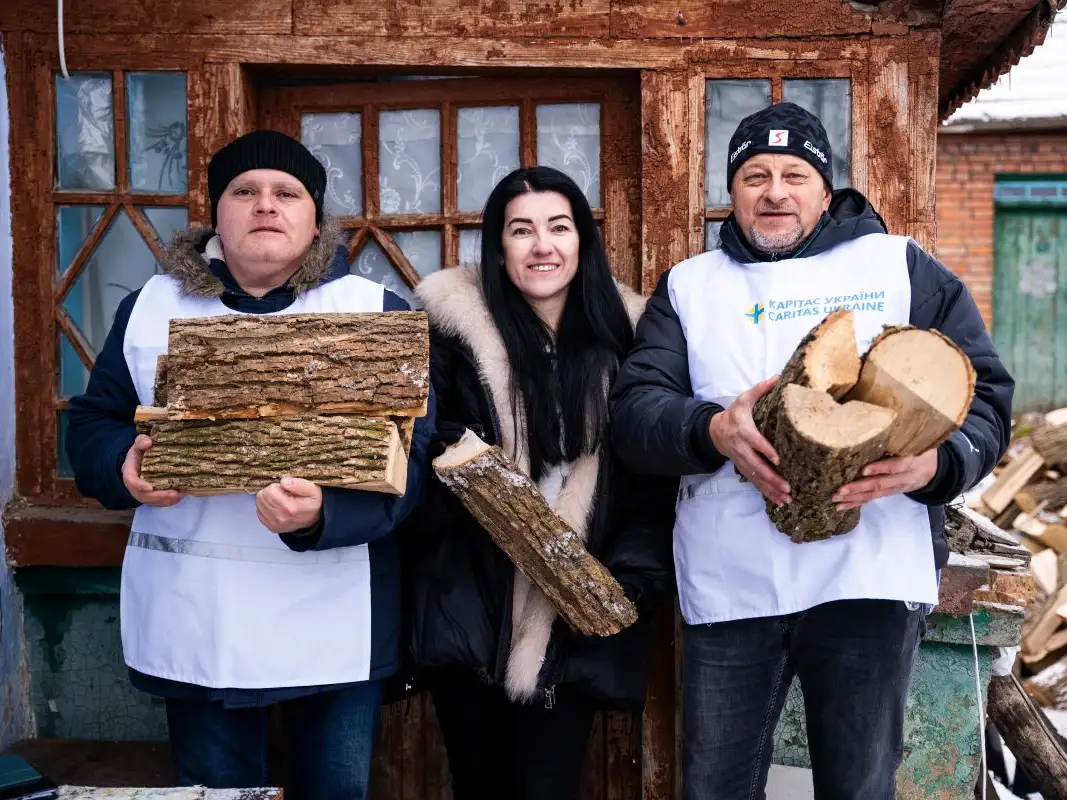

CAFOD’s local partner Caritas and Development Office Monrovia are supporting fishing families in Liberia to improve their employment opportunities and access to food
CAFOD’s vision for partnership
Our local leadership approach is all about making sure the people most affected by issues have the power, voice and leadership to shape solutions. We work with local partners who have lived experiences in the communities we support.
Our staff and volunteers work alongside local partners and communities – listening to their priorities and supporting their vision. This applies to all areas of our work, from on-the-ground projects to advocacy, campaigning and working with other organisations within the development sector.
We shape the projects to fit the specific realities of each community, respecting and building on their knowledge, experience and hopes for the future. We also work to make sure our partners have a real say in important decisions, both within CAFOD and in wider networks, and to help them access long-term, flexible funding.
We are inspired by Catholic Social Teaching and the values of human dignity and solidarity to work together. We work as a team to make real and lasting change.
We’ve signed up to major international agreements (the Grand Bargain and Charter4Change global initiatives launched in 2016) that aim to improve the way aid is given. This makes sure local people and organisations take the lead when crises happen. We also follow clear humanitarian standards - we treat everyone with respect, protect people’s dignity, and support communities to be at the heart of finding solutions to the challenges they face.


CAFOD partner Caritas Brazil responding to extreme flooding in Rio Grande do Sul with the support of Start Fund (a rapid-response fund for under-the-radar, small-to-medium-scale crises). Credit: Caritas Brasileira
How is CAFOD working with local partners?
We pride ourselves in being a member of Caritas Internationalis, one of the largest aid networks in the world with a presence in 165 countries. We believe the local Church can be trusted even in the most dangerous countries, regions and communities regardless of religion.
We work with more than 300 faith-based and non-religious partners around the world. Together, we carry out development, humanitarian and peacebuilding programmes.
Our partnership approach recognises the need for our international programmes to build on existing local capacity. So, we are there before, during and after a crisis hits. We help communities build resilience to help them prepare for shocks and emergencies. In the midst of an emergency, we support them to respond quickly. And we stay - walking alongside them as they recover and rebuild.
We play a leading role in encouraging institutional donors (these are organisations, companies and non-profits who donate) and other aid agencies to see the effectiveness of working with local partners. This includes supporting research and conversations that shift the power to local partners.
We believe a better world needs all of us, that’s why we work locally. That means supporting staff within the communities to lead training. We follow their lead and listen to their knowledge to build projects that help the specific community. Together, with our local partners' knowledge at the centre, we deliver long-lasting results. This means that projects will help families even if the programme finishes. Now, local teams from different countries are sharing knowledge to make the best impact possible.


CAFOD, in partnership with Caritas Jerusalem, are running medical units that provide mobile medical services and psychosocial support during the current Israeli-Palestinian Crisis. Credit: Caritas Jerusalem
Our work on partnership focuses on three key areas
1. Enhancing the voice of local leaders and communities
We have a special approach between us and our partners - informed by the local context and priority of our partners. We work closely with teams in each country to shape our plans together. They help design our programmes and projects, and we make funding decisions with them as equal partners.
We help our local partners and community members get into spaces where they can represent themselves and discuss the injustices they face – like climate justice, debt cancellation, food systems, environmental protection and local leadership of humanitarian response.
This includes taking part in international or regional spaces and networks, such as UN conferences, World Bank meetings and African Union gatherings. It also involves meetings with UK-based decision-makers.
We also work with local and national leaders in each country. Alongside other organisations and partners, we push for changes in policies so that local people can take the lead in responding to humanitarian and development needs in ways that make sense for their communities. This means calling for more funding for local organisations, as well as making sure donors treat them fairly, share risks and give real backing to local leadership.
2. Strengthening local partners' capacities
We work with local partners to make sure each project achieves its goals and addresses the key problems communities face. From building water tanks in southern Ethiopia to campaigning for land rights in Brazil, each project is unique. It’s important we stand with our partners to strengthen their projects and ensure that they make real, positive difference.
To do this, we commit to supporting our partners to strengthen their systems, procedures, resources and knowledge. We encourage peer-to-peer learning, fund partner exchange programmes, and provide resources and training to help partners develop their project management skills.
3. Supporting partners through long-term funding
We are helping our partners build long-term financial stability. We do this by supporting them to secure funding that lasts several years, find different sources of income - such as from large donors - and gain the skills to get funding on their own. This helps make sure their work can continue well into the future.


CAFOD with our partner Caritas Ukraine distributing firewood to local families to help them stay warm during the cold winter. Credit: Svitlana Dmytrenko
Case study: A supportive partnership in Ukraine
CAFOD’s Ukraine Emergency Response Evaluation praised the way we worked with local partners. Our approach was genuine and flexible, creating a fair two-way partnership during the whole humanitarian response. This meant local organisations could adapt and manage their work effectively to get real and lasting results.
Our partnership has been described as a relationship between two equals. It’s built on trust and respect for each other’s expertise. This made partners feel heard and supported.
The impact of this partnership allowed partners the flexibility to adapt quickly in response to the changing humanitarian crisis in Ukraine.

Flooding in Brazil: Hope amid a catastrophe
In April 2024, heavy rains devastated cities and towns in Brazil. The flooding affected more than 2.3 million people in Rio Grande do Sul, the country’s most southern state. At least 179 people were killed.
In the wake of the disaster, local experts from our Caritas network supported the people worst hit.

